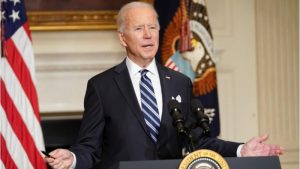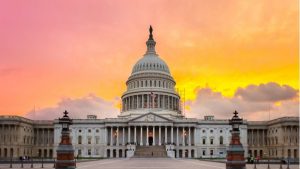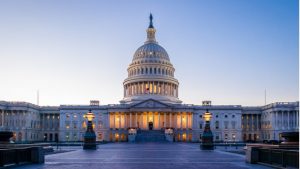A bipartisan group of senators has reintroduced the Rural STEM Education Act, which would provide Federal support for STEM training in rural schools and instruct the director of the National Science Foundation (NSF) to provide grants to support training for rural STEM teachers.
Numerous tech-related issues were front and center in President Biden’s address to a joint session of Congress on Wednesday night, as he delivered pitches backing up his infrastructure-themed American Jobs Plan issued in late March, the American Families Plan unveiled this week, and a preliminary Fiscal Year 2022 budget wish-list made public on April 9.
Republicans in Congress on April 22 presented their own version of a framework to improve infrastructure in the United States. While it doesn’t look too much like President Biden’s much larger American Jobs Plan infrastructure proposal, for tech-related issues the key overlap appears to be funding for broadband infrastructure expansion.
Sens. Gary Peters D-Mich., and John Thune, R-S.D., have introduced legislation that would strengthen the Federal workforce through attracting experts in the AI field to public service.
Majority Whip Rep. James Clyburn, D-S.C., and Sen. Amy Klobuchar, D-Minn., introduced a $94 billion Accessible, Affordable Internet for All Act in the House and Senate, respectively. The bill also has the support of Clyburn’s Rural Broadband Task Force, composed of 27 House Democrats.
Rep. Suzan DelBene, D-Wash., reintroduced the Information Privacy and Data Transparency Act that would adapt state privacy laws and proposals into a national standard for data privacy. She introduced a similar version of the legislation in 2019, but it ultimately did not gain traction.
Sens. Susan Collins, R-Maine, and Jacky Rosen, D-Nev., are introducing legislation that will provide up to $15 billion in matching grants to increase access to broadband services in areas of the United States that are unserved by broadband meeting the Federal Communications Commission (FCC) minimum definition of that service.
In the first legislative step toward paving the way for easier passage of President Biden’s $1.9 trillion COVID-19 relief plan, House Speaker Nancy Pelosi, D-Calif., and Senate Majority Leader Chuck Schumer, D-N.Y., introduced the text of a joint 2021 budget resolution on Feb. 1.
The House and Senate approved a bill that will support the adoption of “.gov” domains across to state, local, and tribal governments, as part of the provisions in the $1.4 trillion bill to fund the Federal government.
After months with no movement and a weekend full of deal-making, Congress is expected to pass a $900 billion COVID-19 relief package as part of a broader Fiscal Year 2021 (FY21) omnibus spending bill. The relief includes a new round of Payment Protection Program (PPP) funding, money for broadband deployment and emergency use, and money to remove banned Huawei and ZTE equipment.













